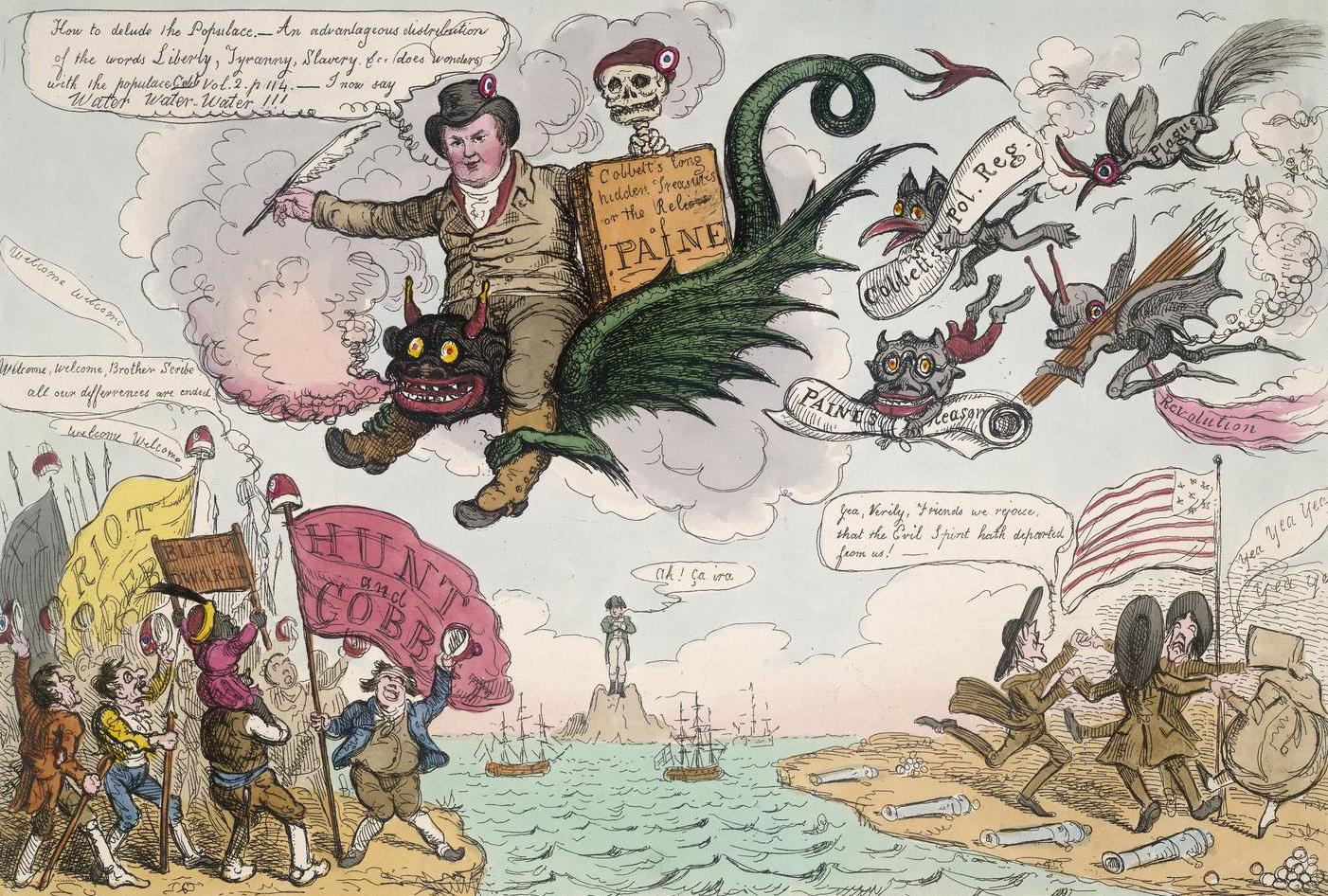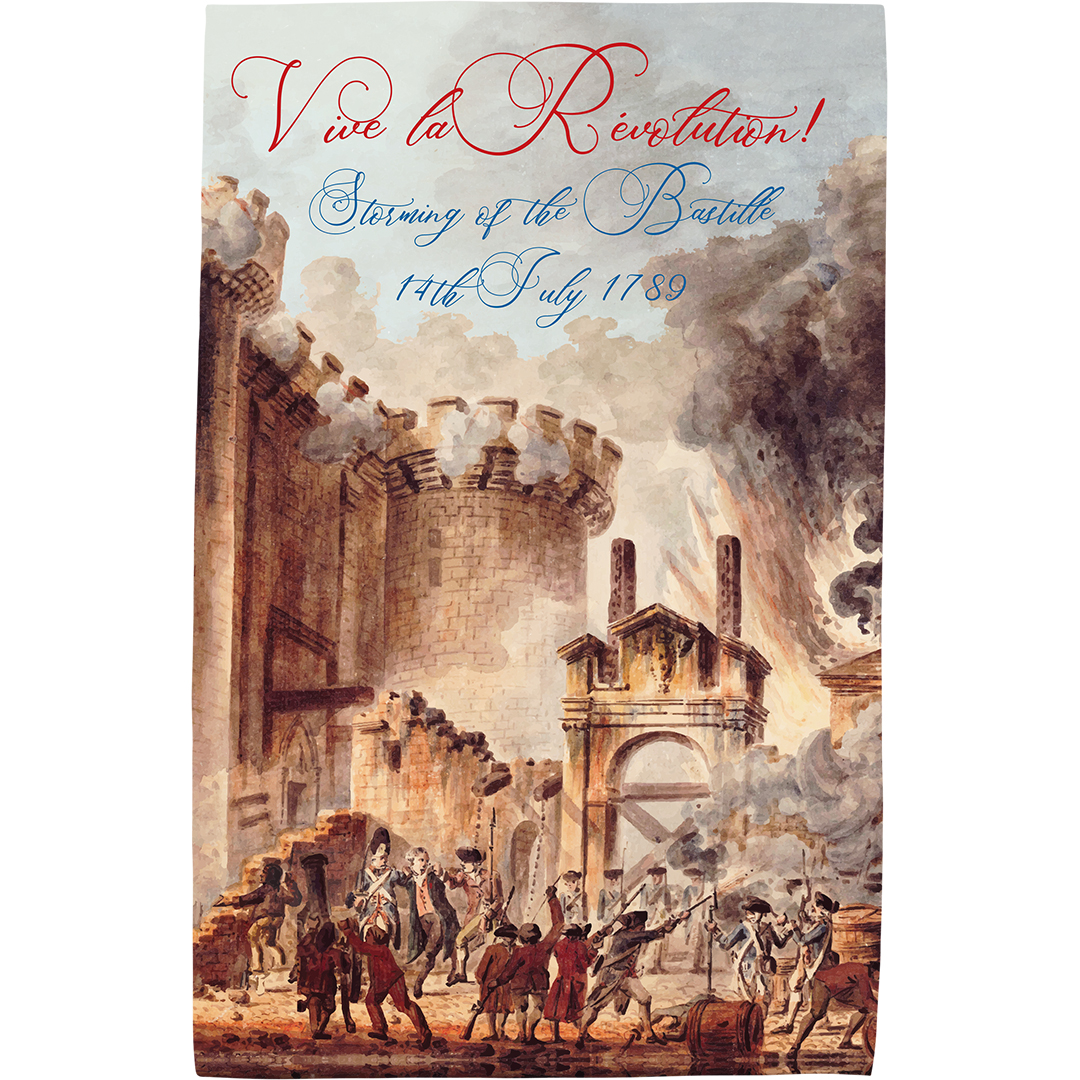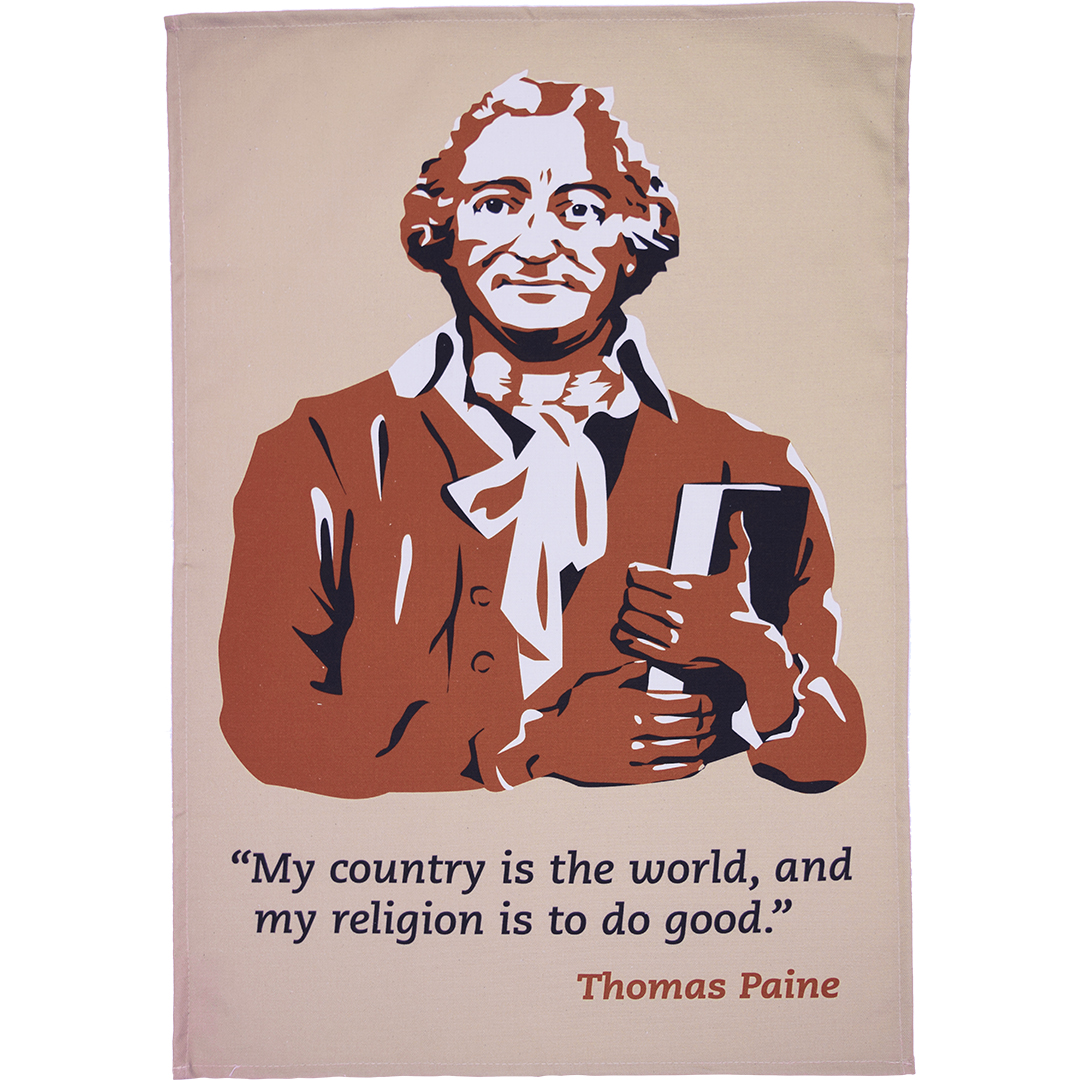Two-Penny Trash: The Life of William Cobbett
Posted by Pete on 21st Mar 2023

Born on 9th March 1763, William Cobbett was a journalist, pamphleteer, and campaigner for parliamentary reform
From the perspective of radical history, William Cobbett was a mixed bag…
Born in rural Surrey in 1763, he grew up to be an alternately radical and reactionary figure in British and U.S. politics. Sometimes, he was radical and reactionary at the same time.
But he lived in a time of revolutions, and was one of the most prominent campaigners for parliamentary reform and democratic rights in the nineteenth century. This is his story.

A portrait of William Cobbett in the National Portrait Gallery, painted by George Cooke circa 1831
Cobbett wasn’t born into wealth. He was the son of rural labourers in Farnham, and worked from a young age. He was even briefly a gardener at London’s Kew Gardens when it was still a royal palace.
In 1783, he enlisted in the British Army, and was posted to Canada for six years.
Just after the French Revolution broke out, Cobbett’s regiment returned to England, and he got a discharge.
As a sergeant major, Cobbett had been appalled at how snobbish, aristocratic officers treated working-class enlisted men.
Cobbett wrote these concerns up in The Soldier’s Friend after he left the army. It was a pamphlet which protested against the low pay and cruel treatment of the military rank and file.
But it was a bold intervention to make in 1792. The British government was increasingly repressive, terrified of a revolution breaking out at home.
After the French Revolution broke out, the British government was terrified of revolutionary fervour spreading across the Channel
Click to view our Storming of the Bastille tea towel
Cobbett’s pamphlet made him a marked man. To avoid being imprisoned for sedition, he fled to France, and then on to the young United States of America.
He settled in Philadelphia, home of the American Revolution. But once there, Cobbett appeared to take a political turn.
On the face of things, he was a persecuted radical, who’d fled the corrupt, monarchical government of England for republican asylum in America.
But in the U.S., Cobbett reappeared as a rabid British Loyalist.
He opened a bookstore and displayed a portrait of King George III, which was, to say the least, conspicuous in 1790s Philadelphia.
And Cobbett took up as a journalist, too. He criticised Thomas Jefferson’s support of the French revolutionary government, and he denounced his radical compatriot Thomas Paine.
So why the political 180°?
Perhaps Cobbett had never been a radical, and The Soldier’s Friend was just an honest, loyal attempt to address material grievances in the Army, misread by a paranoid government.
Or maybe he was just homesick, willing to say whatever it took to be allowed back in to England.
Cobbett was around at the same time as radical hero Thomas Paine, but Cobbett actually denounced Paine repeatedly in his publications
Click to view our Thomas Paine tea towel
Whatever the motive, Cobbett’s advocacy for Britain in the U.S. helped him regain the government's favour.
He returned to England at the end of the 1790s, and continued to play the part of a rabid anti-Jacobin, supporting an aggressive war effort against France.
But soon enough, confronted by the corruption of the British Establishment, Cobbett’s politics started to change again…
Cobbett began to denounce government corruption and the huge national debt. He ran for Parliament in 1806, but was defeated by a rival who just bought the votes.
By 1807, Cobbett was openly supporting Parliamentary reformers like Francis Burdett. And in 1810, he was thrown into prison for two years for once again protesting against the corporal punishment of British soldiers.
A few years later, Cobbett launched a paper, the Political Register. The Napoleonic Wars were over, and the British people were agitating for electoral reform.
The Register was mocked by conservatives as “two-penny trash” – a term Cobbett adopted. The affordability of his paper made it the journal of choice for the British working class, reaching a circulation of 40,000.
He used it to demand a wider franchise and the end of ‘rotten boroughs’ – parliamentary seats with just a handful of voters, whose MP was decided by one or two aristocratic powerbrokers.
This emerging ideology of democratic reform was still messy, mixing progress with reaction.
Cobbett, for instance, justly denounced William Wilberforce for supporting the criminalisation of trade unions in Britain, but then took his argument so far that he dismissed the abolition of slavery.
There was much work still to be done, then. The British working class would never be free if it imagined its liberation as incompatible with that of the enslaved African.
But a democratic ideology, rich in potential, was emerging in the early nineteenth century. And the peculiar, incoherent character of William Cobbett was at the forefront.


